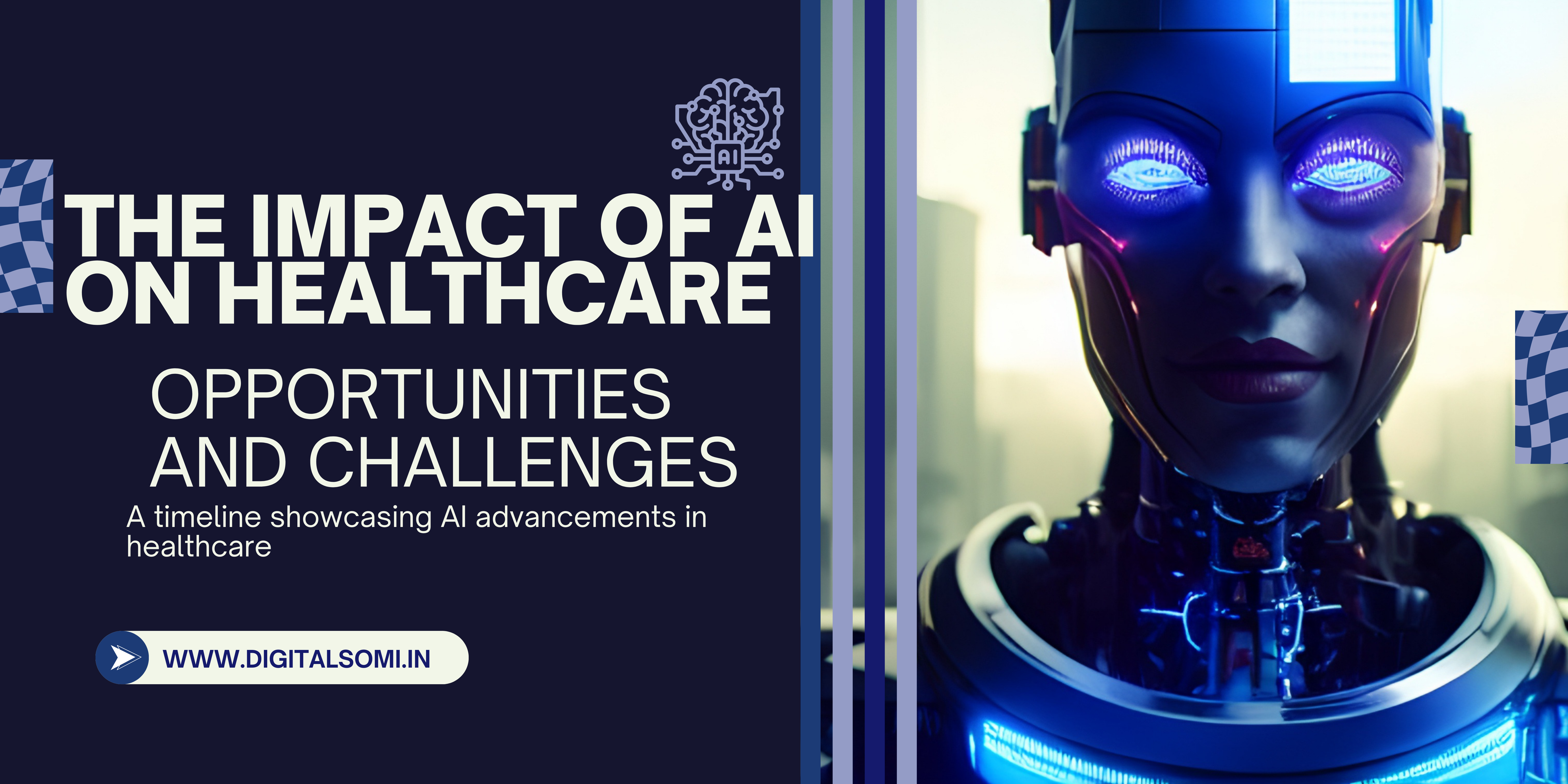Artificial intelligence refers to the simulation of human intelligence processes by machines, particularly computer systems. In healthcare, AI systems are designed to mimic human cognitive functions, such as learning, reasoning, and problem-solving. These systems can analyze large datasets, recognize patterns, and make predictions crucial for improving patient care. Machine learning, deep learning, and natural language processing are some of the key components of AI that have found significant applications in the healthcare sector.

How Technology is Transforming Diagnostics
One of AI’s most promising applications in healthcare is diagnostics. With incredible precision, AI-powered systems can analyze medical images, such as X-rays, CT scans, and MRIs. Algorithms trained on large datasets can identify abnormalities that may be missed by the human eye, making the diagnostic process faster and more accurate. For example, AI has shown success in detecting early-stage cancers, such as breast cancer, by analyzing mammograms more effectively than traditional methods.
Additionally, AI can assist in diagnosing a wide range of diseases based on genetic data, lifestyle factors, and other health information, ensuring early detection and personalized treatment plans.
Smart Tools for Personalized Patient Care
AI enables the development of personalized treatment strategies by analyzing vast amounts of data, including a patient’s genetic makeup, lifestyle, and medical history. Machine learning algorithms can identify patterns in this data, allowing healthcare providers to tailor treatment plans that are specifically suited to the individual, improving patient outcomes.
Personalized medicine, powered by AI, can optimize drug treatments and dosages based on genetic profiling, minimizing adverse effects and enhancing efficacy. This is particularly valuable in fields like oncology, where treatment regimens need to be highly specific to the patient’s condition.
Predictive Analytics: A Game-Changer for Preventative Health
AI is capable of predictive analytics, which involves analyzing historical data to forecast potential health risks. By identifying trends and patterns in patient health records, AI can help healthcare providers predict and prevent chronic conditions, such as diabetes, heart disease, or stroke. This early detection leads to more proactive care, allowing patients to make lifestyle changes before the condition worsens.
For instance, AI models can analyze a patient’s health metrics, like blood pressure, cholesterol levels, and body weight, to predict the likelihood of heart disease. With this information, doctors can recommend preventive measures such as diet changes, exercise, or medication to reduce risk.
Precision in Surgery: Robotic Assistance Powered by AI
Robotic surgery, assisted by AI, is another area where healthcare is benefiting from technological advancements. AI-powered robots can assist surgeons in performing complex procedures with higher precision. These robots are equipped with sensors and algorithms that provide real-time feedback, ensuring minimal error and faster recovery times for patients.
Furthermore, AI-powered surgical robots can enhance minimally invasive surgeries, reducing the need for large incisions, lowering infection risks, and improving post-operative outcomes. This is particularly beneficial in delicate surgeries, such as those involving the brain or heart, where precision is crucial.
Improved Patient Engagement and Monitoring AI can help enhance patient engagement and self-management. With AI-driven mobile apps, patients can track their health status, monitor vital signs, and receive reminders for medication and appointments. AI chatbots can provide patients with immediate answers to their questions and guide them through their treatment options, reducing wait times and increasing accessibility to healthcare information.
Moreover, wearable devices powered by AI can continuously monitor a patient’s condition, offering real-time data to doctors and alerting them to potential health issues before they escalate. This is especially important for patients with chronic conditions, enabling continuous care without frequent hospital visits.
Challenges in Integrating AI into Healthcare
While AI offers numerous advantages, its integration into healthcare is not without challenges. Some of the key issues include:
Data Privacy and Security AI systems rely on vast amounts of patient data to function effectively. This data often includes sensitive information, such as medical histories, genetic data, and personal health records. Ensuring that this data is protected from breaches is a significant concern. Healthcare providers must adhere to strict data privacy regulations, such as HIPAA in the U.S., to protect patient information.
Moreover, AI systems need to be designed with robust security features to prevent unauthorized access, data theft, or misuse. Balancing data utilization for AI advancement with privacy concerns is a delicate issue that requires continuous monitoring and updates to regulations.
Bias and Fairness AI systems can inherit biases from the data they are trained on. If an AI system is trained on a dataset that lacks diversity or is skewed toward specific demographic groups, it may produce biased results, leading to inaccurate diagnoses or treatment recommendations for underrepresented populations. For example, an AI system trained primarily on data from one ethnic group may have trouble accurately diagnosing conditions in individuals from other ethnicities.
Addressing bias in AI models is crucial for ensuring that healthcare remains equitable and accessible for all patients, regardless of their background. Researchers and developers must work to create more diverse and inclusive datasets to mitigate these biases.
Regulatory and Ethical Concerns AI in healthcare raises various regulatory and ethical issues. Determining who is responsible when an AI system makes an error or causes harm is a critical question. Should it be the developers, the healthcare providers, or the AI itself? Additionally, there are concerns about the ethics of allowing machines to make life-altering decisions, such as treatment options or surgery plans, without human oversight.
Regulatory bodies are working to establish frameworks to ensure the safe and ethical use of AI in healthcare. These regulations must strike a balance between encouraging innovation and protecting patient safety.
Acceptance and Trust Despite its potential, AI in healthcare may face resistance from both healthcare providers and patients. Many doctors and nurses may be hesitant to rely on AI-driven systems, fearing that it might replace human judgment or compromise the quality of care. Building trust in AI tools through rigorous testing, transparency, and education is essential to fostering acceptance in the healthcare community.
Patients may also feel uncomfortable with AI’s involvement in their care, especially if they perceive it as impersonal or intrusive. Clear communication about the role of AI and its benefits will be crucial for gaining patient trust and support.
Conclusion
The integration of AI into healthcare holds immense potential to transform the industry, offering improved diagnostics, personalized treatments, and more efficient healthcare delivery. While the opportunities are vast, the challenges associated with data privacy, bias, regulation, and trust must be addressed to ensure that AI is implemented responsibly and ethically.
As the technology continues to evolve, collaboration between healthcare professionals, AI developers, and regulatory bodies will be key to ensuring that AI’s impact on healthcare is both positive and sustainable. Ultimately, AI can enhance the quality of care, reduce costs, and improve patient outcomes, but its adoption must be handled with care, keeping patient safety and equity at the forefront. click here






